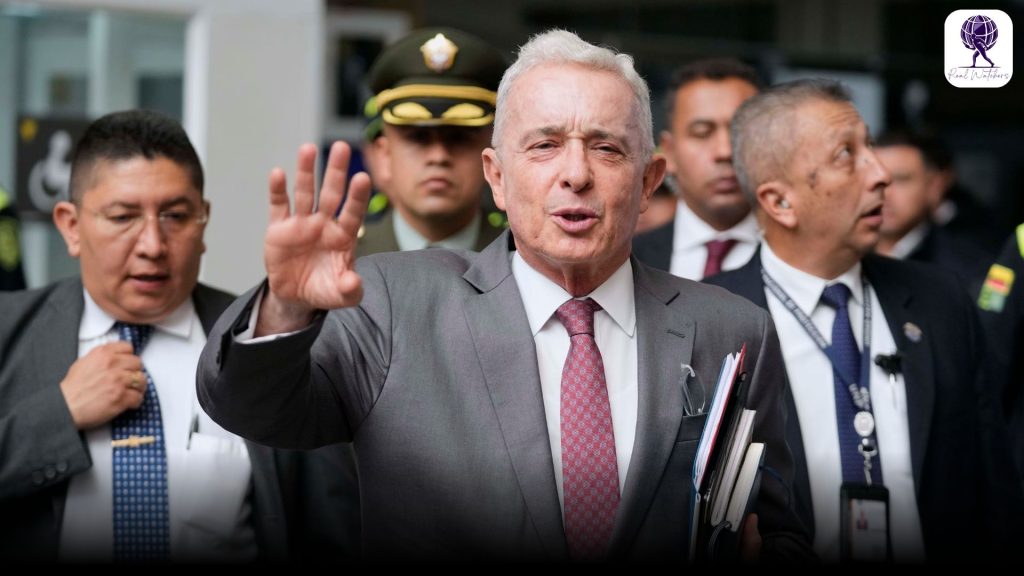On Friday, a Colombian judge imposed a 12-year house arrest sentence on former president Alvaro Uribe, a significant development that concludes a lengthy and controversial political career that has shaped Colombian politics for decades.
At the age of 73, Uribe has been handed the maximum sentence following his conviction for witness tampering.
This sentence represents a historic moment in Colombia, as it is the first instance of a former president being convicted of a crime and receiving a sentence.
From 2002 to 2010, Uribe presided over Colombia, spearheading a vigorous military initiative aimed at dismantling drug cartels and combating the FARC guerrilla army.
Despite facing accusations from critics of collaborating with armed right-wing paramilitaries to dismantle leftist rebel groups, he continues to maintain a significant level of popularity in Colombia.
He continues to hold significant influence over conservative politics in Colombia, acting as a kingmaker in the appointment of new party leaders.
A conviction was secured against him for soliciting right-wing paramilitaries to provide false testimony regarding their purported connections to him.
On Monday, a judge delivered a guilty verdict on two counts: witness interference and procedural fraud.
Uribe maintains his innocence and has informed the court of his intention to appeal the ruling.
“You have treated me in the worst possible way,” he stated to Judge Sandra Heredia during the sentencing hearing.
As a staunch advocate for law and order, Uribe maintained a strong alliance with the United States and continues to have connections with the American right.
US Secretary of State Marco Rubio has publicly criticised the prosecution of Uribe, asserting, without substantiating his claims, that it signifies “the weaponization of Colombia’s judicial branch by radical judges.”
Recent opinion polls have identified him as the most popular politician in the South American country.
Is this a case of political retribution?
The inquiry into Uribe commenced in 2018 and has experienced a series of developments, with multiple solicitors general attempting to bring the case to a close.
Under the leadership of Attorney General Luz Camargo, appointed by President Gustavo Petro, the initiative has gained significant momentum. Petro, a former guerrilla, has long been a political adversary of Uribe.
The trial, which commenced in May 2024, saw the testimony of over 90 witnesses.
Throughout the trial, prosecutors presented evidence from at least one former paramilitary fighter who claimed Uribe approached him to alter his testimony.
In 2019, thousands took to the streets in Medellin and the capital, Bogota, in response to his initial indictment in the case.
On Monday, a contingent of supporters assembled outside the courthouse, donning masks resembling his likeness and vocally proclaiming: “Uribe, innocent!”
The former president is currently facing scrutiny in additional cases.
He provided testimony to prosecutors during a preliminary investigation concerning a 1997 paramilitary massacre of farmers that occurred while he served as governor of the western Antioquia department.
A complaint has been lodged against him in Argentina, a country that operates under universal jurisdiction, permitting the prosecution of crimes regardless of where they were committed globally.
The complaint arises from allegations against Uribe regarding his involvement in over 6,000 executions and forced disappearances of civilians carried out by the Colombian military during his presidency.
Uribe claims that his trial for witness tampering is driven by “political vengeance.”








